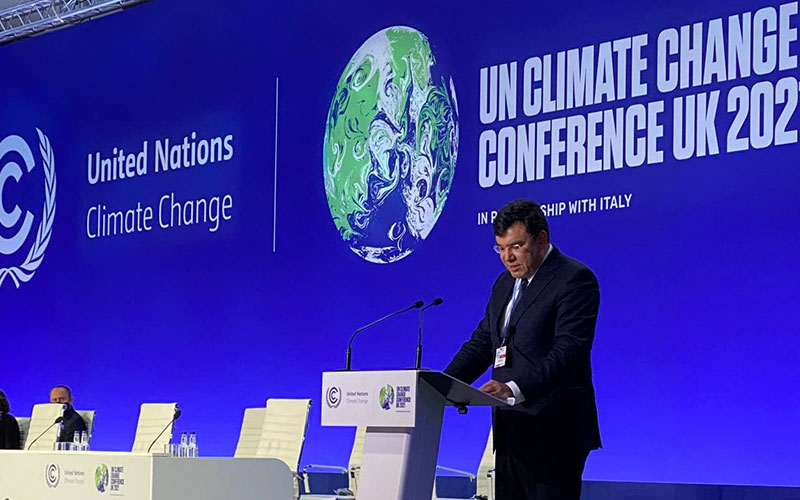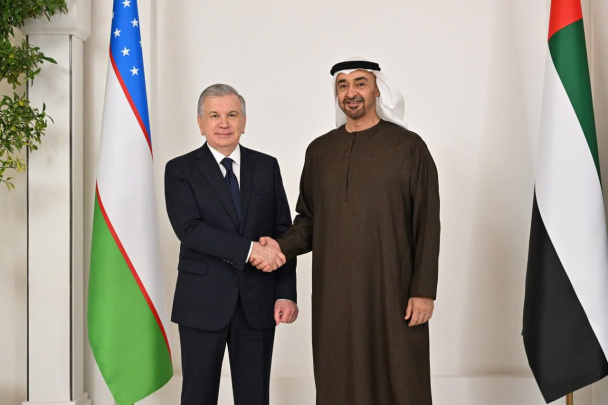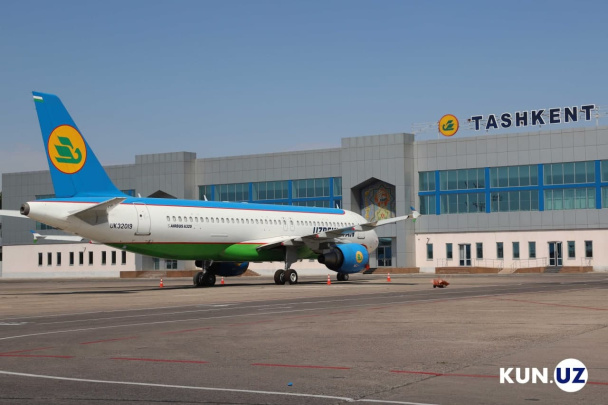In his speech, he noted that climate change is one of the main challenges of our time, which directly affects the quality of our life. Today, the impacts of climate change have become global and unprecedented in scale. They are fully manifested in the Central Asian region.
For example, as a result of the Aral Sea disaster, climatic changes in Central Asia occur twice as intense as the world average.
An increase in the frequency and geography of dust storms, aggravated problems of land degradation and reduction of water resources are among the negative manifestations.
Deeply aware of all these processes, Uzbekistan pays the most serious attention to promoting the issues of the “green” agenda, preserving ecology and biodiversity, and careful use of natural resources.
At present, at the national level, Uzbekistan is actively implementing a comprehensive Strategy for the transition to a “green” economy, the Program for Development of Renewable and Hydrogen Energy. Every year, including 2021, 200 million seedlings will be planted in the country. By 2030, the energy efficiency of the economy will double, the share of renewable energy will be at least 25%.
Within the framework of the Paris Agreement, Uzbekistan takes on an additional commitment to reduce greenhouse gas emissions per unit of GDP by 35% until 2030 compared to 2010. To achieve this goal, it is planned to develop a National Low-Carbon Development Strategy.
At the regional level, Uzbekistan, together with partners from Central Asian countries, is taking decisive actions in the field of combating drought and water shortages, mitigating the consequences of the Aral Sea tragedy and socio-economic development of adjacent territories.
In order to unite efforts to counter these challenges, next year in the Aral Sea region, in the city of Nukus, it is planned to hold a high-level international forum on “green” energy under the auspices of the UN. This event will become an important step in the implementation of the UN General Assembly Special Resolution approved in May this year on declaring the Aral Sea region a zone of environmental innovations and technologies. The Uzbek side called on the conference participants to actively participate in the implementation of projects and programs within the framework of the activities of the UN Multi-Partner Trust Fund for Human Security for the Aral Sea region.
Uzbekistan also welcomes the agreement of the recent G20 meeting to adopt a balanced and effective Global Framework for Biodiversity.
To discuss the priorities of international environmental policy, it is proposed to hold the 6th high-level UN Environment Assembly in Uzbekistan in 2023.
Uzbekistan also announced its support for the joint declaration on forests and land use, adopted during the Glasgow summit.
In conclusion, the readiness of Uzbekistan was emphasized to actively participate in multilateral efforts to promote topical issues of the “green” agenda and curb climate change processes, to implement, together with the international community, all necessary measures for the future of our planet.






